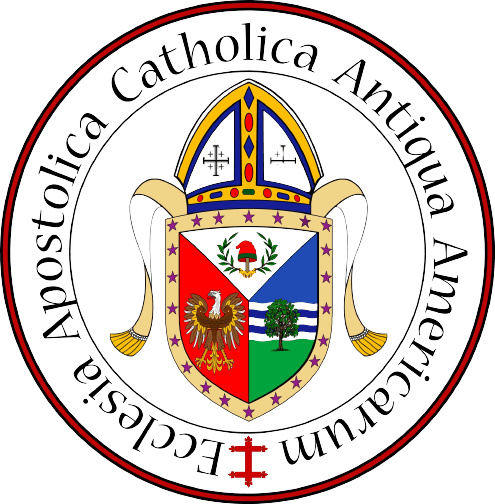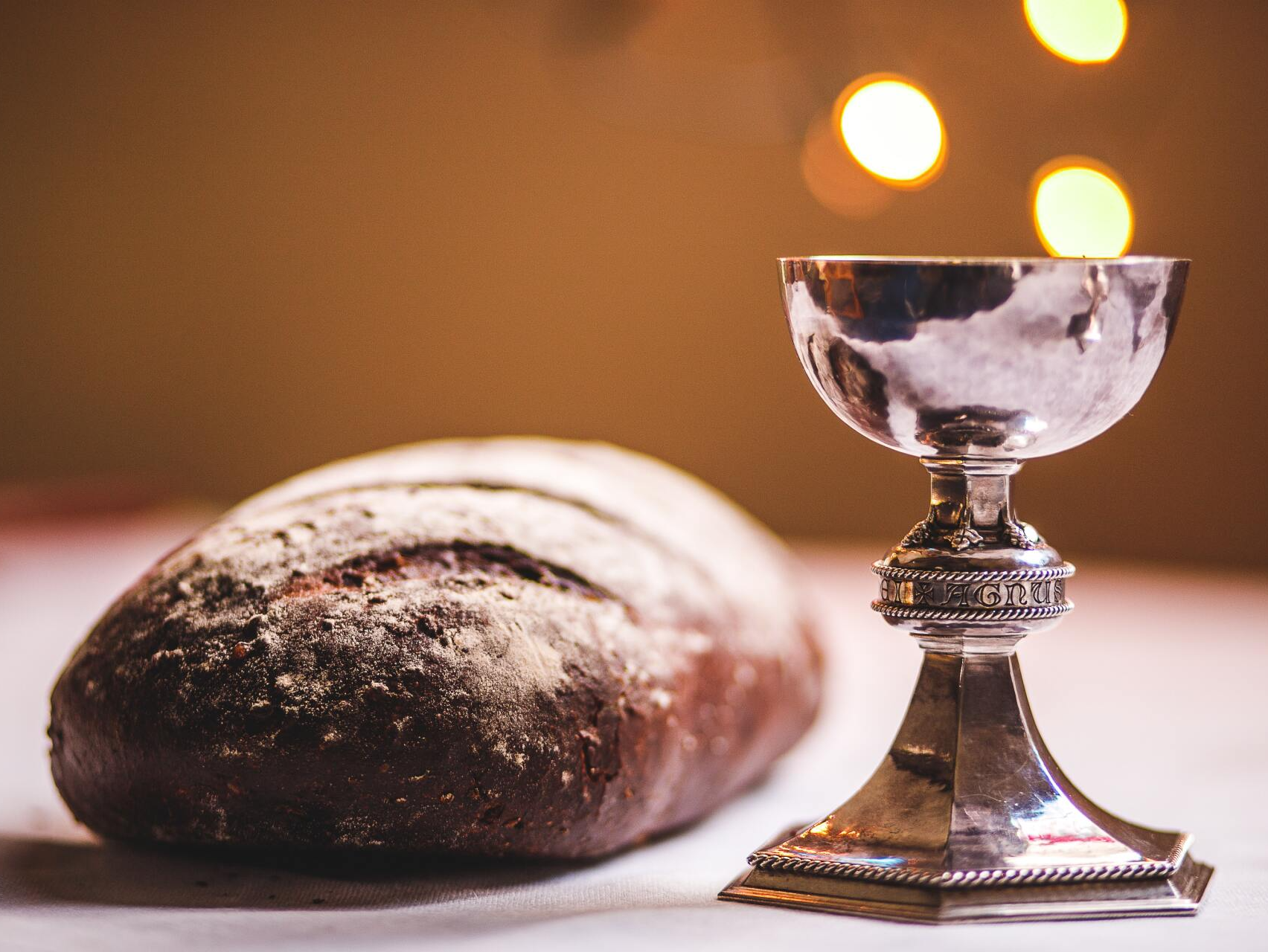-
Are you Catholic?
When people speak of Catholics today, they often mean Roman Catholics. However the term catholic was first used in the letter of Saint Ignatius of Antioch to the Smyrnaeans (about AD 110) in reference to the universal church. There are in fact many Communions (Churches) that are part of the Catholic Church as they can trace their beliefs, teachings, and origins to the ancient undivided Apostolic Church. One of the primary attributes of a Catholic Church is that each maintains a line of Apostolic Succession in their clergy thus making them part of the One Holy Catholic and Apostolic Church as proclaimed in the Nicene Creed.
-
What is Catholic?
The Old Catholic Church traces it roots to the Anglo-Saxon monk St. Willibrord who missionized the area of Europe now known as the Netherlands and France. The name ""Old Catholic"" began to come into use in 1741 when the Church in Utrecht turned from Roma and began to refer to call themselves as Roman Catholics of the Old Episcopal Clergy (Old Catholics). It wasn't until late 19th century in Europe when over the refusal to accept Papal Infallibility that the Churches in Europe formally adopted the name ""Old Catholic"". It is this earlier universal Christianity that was taught to the people in this part of the world and it is that universal Church that Old Catholics seek to restore.
-
Are you in communion with the Roman Catholic Church?
No. The Old Catholic Churches separated from the Roman Catholic Church in the late 19th century over the refusal to accept the dogma of Papal Infallibility.
-
Old Catholic - does that mean your Mass is in Latin?
No. The name Old Catholic was chosen to signify the desire of the Church to return to the traditions and teachings of the undivided church prior to the great schism in the year 1054.While there are various other jurisdictions that may celebrate the Holy Sacrifice of the Mass in Latin, our services are conducted in English. In addition, our Cathedral parish uses the Roman Sacramentary as the basis for all of its Liturgies.
-
Since you are not under the authority of the Pope then who is the head of your church?
Jesus Christ is the head of the Church and as proclaimed by the Early Church Fathers the Holy Spirit is the Vicar of Christ. However, our parishes and clergy, like all other Catholic Communions, are under the guidance and authority of one or several individuals who have been consecrated to the Episcopacy - in our case, that is our Patriarch, Mar Ignatius Alexander I.As the Apostolic Head of our Church, he is guided by the Holy Spirit and the College of Bishops working in collegiality with each other. Our Patriarch's lines of Apostolic Succession, along with the other members of the College of Bishops can be traced to the ancient and undivided church. All clergy in our church are ordained with proper matter, form, and intent by the laying on of hands, during the Holy Sacrifice of the Mass, and in the presence of a congregation. Any priest who is to be elevated to the Office of Bishop, will always have a minimum of two co-consecrators along with the primary consecrator. No priest in our church is permitted to be elevated to the Episcopacy until he or she has served in active ministry for a minimum of 10 years.
-
I noticed that you are married. How can this be?
The idea of married clergy is not something that was in effect from the beginning of the Roman Catholic Church. This came about much later and we, The Old Catholic Apostolic Church of the Americas, are merely returning to the roots of our Catholic Faith. This does, however, impose more responsibilities upon the clergy. Each member of the clergy must hold full time positions outside the church to enable them to take care of their families and to support the church, whenever there is a need. Their priestly ministry can be done evenings and weekends.
All members of the church are required to observe some form of celibacy. If the Deacon or Priest is married, it is absolutely expected that they are faithful to their marriage commitment, but this also applies to every Catholic. If they are single, they are expected to practice celibacy until they are married.
-
Do you allow women to be ordained?
Yes. Once again, our Patriarch and the College of Bishops believe that to refuse the full sacerdotal ministry to an individual is to act in a manner as to limit whom God may call to His service.
-
My spouse is not Catholic may they receive Eucharist?
Yes. The Old Catholic Apostolic Church of the Americas (OCACA) believes that any person Baptized in the name of the Father, Son, and Holy Spirit is a member of the Body of Christ (Church) and therefore may receive Communion.
-
I am divorced and remarried may I receive Communion?
Yes. While the OCACA looks upon matrimony as a sacrament, and believes that marriage should be a lifelong commitment between two loving individuals, we do realize though that situations will arise that will lead to divorce. It is our opinion that to refuse Communion to a divorced individual who is sincerely seeking to repent and turn to Christ is to inflict additional emotional pain and suffering.
-
What are your beliefs on homosexuality?
We believe that God cannot make mistakes and since He created man and woman in His image, all people, no matter their color, creed, belief, or sexual orientation are children of God and are loved by Him. God alone serves as judge and He never assigned or permitted humanity to take on that duty. Therefore, God alone will judge us in that final hour. Our church recognizes the good in all peoples and treats everyone with dignity and honor. Our church follows what Jesus taught when he said: ""As I have loved you, so you also should love one another. This is how all will know that you are my disciples, if you have love for one another."" (Jn 13: 34-35). We understand and not only verbalize this but also put this in to practice - all are welcome at our church without exception or judgment.
-
Do I have to go to confession?
If you are asking if you must confess and repent of your sins to be forgiven then the answer is yes. If you are asking must you confess your sins before a priest to be forgiven then the answer is no. The OCACA teaches that the sacrament of Reconciliation is provided through private confession to either a Priest or Bishop. It is our belief that the INTENT (sincerity) of the individual takes precedent over form.
-
What does the OCACA teach about abortion?
The OCACA considers abortion at any time during the pregnancy to be the taking of a life. We encourage any woman faced with an unwanted pregnancy to consider adoption over abortion. We realize that at times a woman is faced with making a decision about a pregnancy that could result in harm, or even loss of life, to herself consult with qualified professionals and clergy prior to making her decision. The OCACA will never turn away a woman who has had an abortion from the loving embrace of Jesus.
-
Do you have the same Sacraments as the Roman Catholic Church?
Yes, we profess and provide all seven sacraments.
It is our utmost desire to provide a place where all can come to worship God, say their prayers, receive the Sacraments and be fed with the Word. Of particular concern to us is the offering of valid sacraments to those who have left Roman Catholicism or other Christians seeking forms of worship and beliefs founded in the traditions and beliefs of the early church.
We offer and profess Seven Sacraments. They are Baptism, Reconciliation, Holy Communion, Confirmation, Holy Matrimony, Holy Orders and Anointing of the Sick. We believe that all those baptized in the Name of the Father, Son, and Holy Spirit are [by this Baptism] members incorporate into the Body of Christ. Thus, all our Christian brothers and sisters of other denominations are welcome to receive Holy Communion in our Church.
Mass held at:
75 East Market Street
Mailing address:
1204 Stanhope Street, Bethlehem, PA 18017
(610) 849-2061
ABOUT
OCACA INFORMATION
STAY UP TO DATE
Contact Us
We will get back to you as soon as possible.
Please try again later.

